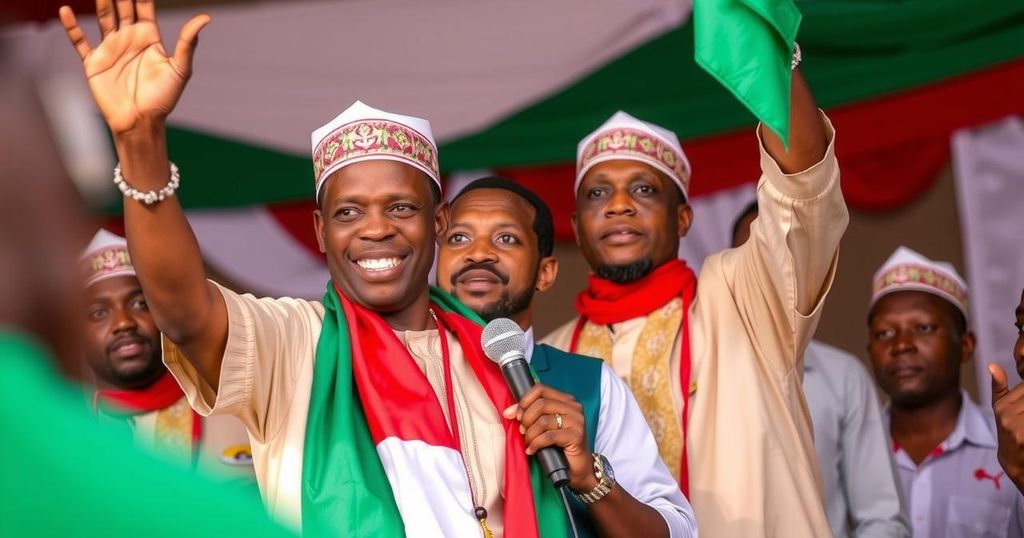Chad’s Ruling Party Secures Majority Amid Opposition Boycott in Elections

Chad’s ruling party, the Patriotic Salvation Movement, won a majority of seats in the recent parliamentary election, securing 124 of 188 available seats amidst a boycott by the main opposition parties. This election was the first in over a decade, occurring during a critical transition towards democracy following the military assumption of power by Mahamat Idriss Deby in 2021. The opposition criticized the election as a sham, highlighting concerns over its credibility and the political future of Chad.
In a parliamentary election conducted last month in Chad, the ruling Patriotic Salvation Movement party secured a commanding majority, winning 124 out of 188 available seats. The election, the first such event in over a decade, saw a voter turnout of 51.5%. This election followed the military ascent of Mahamat Idriss Deby in 2021, which occurred after the death of his father, Idriss Deby Itno, who had ruled for thirty years. The parliamentary election was part of a broader transition towards democracy, aiming to decentralize power across various levels of government.
Despite the optimism surrounding the electoral process, the principal opposition parties, including the prominent Transformers party led by Succes Masra, opted to boycott the elections. They criticized the elections as a “charade” and expressed concerns over the potential for the event to mirror the contentious presidential elections of the previous year, which had been labeled as lacking credibility by observers. As such, the absence of opposition voices raises questions about the legitimacy and representativeness of the newly elected legislature.
This election unfolds amid a backdrop of significant challenges for Chad, including dealing with militant threats from Boko Haram in the Lake Chad region and the deterioration of longstanding military relations with France, a crucial ally in regional security. The results are indicative not only of the current political landscape but also of the future path of governance in Chad under Deby’s rule.
Chad is undergoing a complex transition toward democracy following the military rule established by Mahamat Idriss Deby after the death of his father, a long-standing president. The recent parliamentary elections, which were also intended to include regional and municipal levels, represent a pivotal phase in this transition. However, the electoral process has raised concerns over democratic legitimacy following widespread opposition boycotts and allegations of past election irregularities, which continue to shape the political climate in the country.
The parliamentary elections in Chad highlighted the ruling party’s dominance amidst significant opposition boycotts, raising concerns about the legitimacy of the electoral process. Allegations of electoral impropriety echo throughout the political landscape, underscoring the challenges that remain in ensuring a truly representative governance system. The situation is compounded by ongoing security concerns and shifting international relationships, as Chad continues to navigate a path to stabilization.
Original Source: abcnews.go.com







